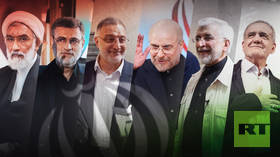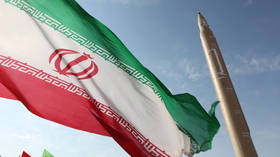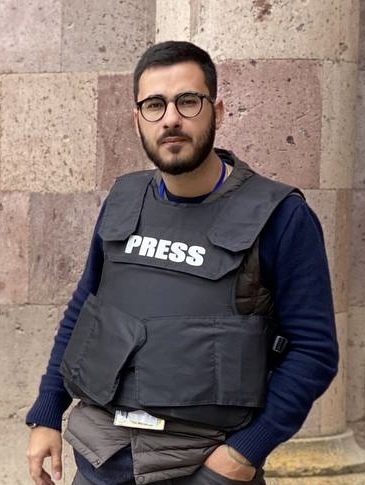‘Iran’s enemies expected unrest in the country’: Here’s how the Islamic Republic will get a new president
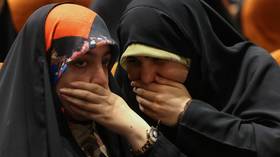
On June 28, Iran will hold presidential elections following the tragic death of the country’s former president Ebrahim Raisi in a plane crash on May 19.
Some believe that the president doesn’t have any real power in the Islamic Republic, but this is not true. The Iranian president does not have great influence over global issues such as the country’s foreign policy, national security strategy, or the nuclear program. However, he largely determines Iran’s domestic policy. He appoints the Council of Ministers and the heads of the main state institutions, and this directly affects the lives of the Iranian people.
The president is also responsible for solving economic problems. In fact, the resolution of economic issues caused by sanctions against Iran will be a measure of success for the new administration.
For example, former president Raisi came to power against the background of the economic failure of his predecessor, reformist Hassan Rouhani, and the collapse of the nuclear deal. The result of Rouhani’s two terms in office was failure on all counts: the country achieved zero economic growth and faced record inflation (the highest in 60 years), a 700% increase in the dollar exchange rate, the biggest social gap in ten years, and the largest stock market decline in half a century.
The candidates and the rules
Six candidates were allowed to participate in the presidential elections. Five of them represent the conservative camp, with the most popular candidate being the current speaker of the parliament, Mohammad Bagher Ghalibaf.
There is also one reformist candidate, Masoud Pezeshkian. This is an interesting decision, since in recent years, the role of the reformists has been marginalized due to their failures in governing the country. Nevertheless, Pezeshkian hired former foreign minister Mohammad Javad Zarif as his chief national security adviser. Many experts took this as a sign that, if Pezeshkian wins, he will take a course towards improving relations with the West in order to lift some of the sanctions and improve Iran’s economy.
However, such rhetoric is currently not very popular in Iran. Ghalibaf’s plan is much more clear. By the way, he is not a representative of ultra-religious forces and calls himself a neoconservative. Ghalibaf’s moderate views and extensive experience as mayor of Tehran give him an important advantage as a candidate. Moreover, Ghalibaf has extensive ties with the Islamic Revolutionary Guard Corps (IRGC), which indicates that he has no major contradictions with Iran’s key national security institutions.
According to the Iranian constitution, in order to win the election, a candidate must secure a simple majority. If no one achieves this result, a runoff election will take place next Friday between the two candidates who get the most votes.
Not your ordinary elections
“The current elections will be held a year earlier than is stipulated by the law. Due to the extraordinary circumstances in the country, Iran’s enemies were expecting unrest in the country. However, everything is going according to the usual schedule,” said Abbas Mirzaei Ghazi, a representative of the Russian-Iranian Center for Economic and Legal Cooperation.
Ghazi headed Ghalibaf’s campaign headquarters in Moscow during the pre-election period. “The current elections have another special feature. They will be held within 50 days after the death of the [former] president (according to Article 131 of the country’s constitution). This means that the candidates had very little time to present their four-year plan to voters. They had less than two weeks to gain the trust of the public.”
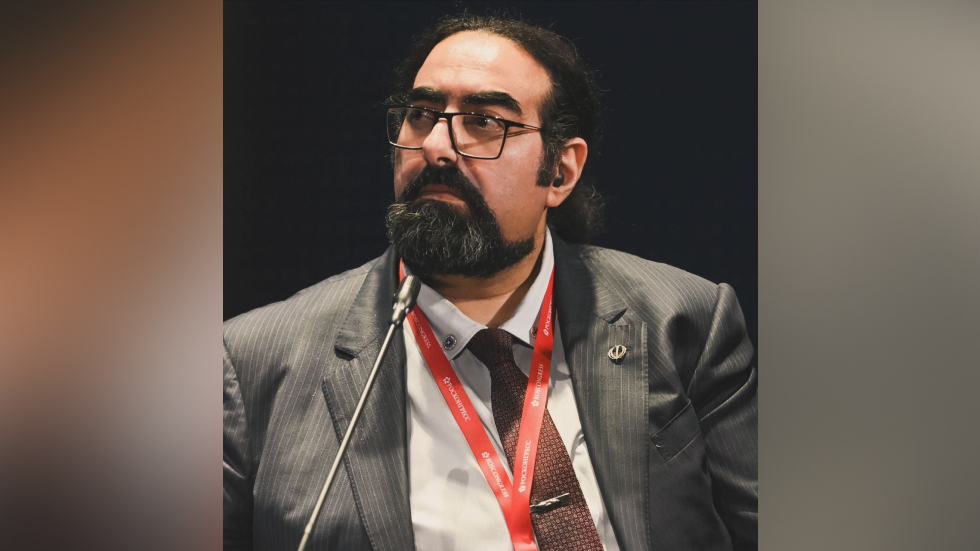
RT: Observers pay particular attention to the voter turnout in Iranian elections. Do you think the turnout will be high this time? Some sources predict that it may be quite low…
Abbas Mirzaeli Ghazi: We should be realistic and ignore the propaganda of the Western media. Considering the fact that candidates from both the conservative and reformist camps are running in the election, they promise to be interesting. I predict that the voter turnout in this round [of the election] will be over 49%.
RT: Mr Ghalibaf, whose team you represent, has often noted that he will continue the policy of the previous president. What does this refer to?
Abbas Mirzaeli Ghazi: To the expansion of [Iran’s] relations with neighboring countries. This policy started under the Raisi administration, and Dr Ghalibaf’s administration is determined to continue on this course. Ghalibaf said that Iran possesses the ‘gold key’ to relations with countries like Russia, China, India, Pakistan, and, of course, Central Asia. Dr Ghalibaf’s government will never follow a passive geopolitical course.
Economic issues
RT: At the presidential debates, economic growth was named a priority goal. Do you think the new president will be able to achieve this? And what are the main challenges in this regard?
Abbas Mirzaeli Ghazi: I believe that the key point is to form a government that the public will trust. Iranians should feel confident about the future – without this, there can be no economic growth.
RT: Do you believe that work on concluding a comprehensive cooperation agreement between Russia and Iran will continue after the elections?
Abbas Mirzaeli Ghazi: Of course. Just like the Russian Federation’s macro policy is determined by Mr Vladimir Putin and is then implemented by the government, in the Islamic Republic of Iran, the macro policy is determined by the Supreme Leader and is handed over to the government of the Islamic Republic of Iran for implementation.
As Ayatollah Khamenei noted, the agreement will be concluded and implemented by the future government of the Islamic Republic of Iran. The signing of the comprehensive cooperation agreement between Russia and Iran will take place quite soon.
Conclusion: Main challenges
RT: One last question: What challenges will the new president face? What will his first steps look like?
Abbas Mirzaeli Ghazi: The biggest issues are economic imbalance and inflation. In this context, the energy issue is important. In recent years, the country’s energy consumption growth rate has exceeded all international standards. On average, our energy consumption grew by between 6% and 6.5% per year, but our oil production was stable and decreased after the sanctions. In the gas sector, although production increased, it has already reached its peak.
This means that consumption is growing, while production has stagnated. In this situation, investments in oil and gas fields are at their lowest and their rapid decline is very alarming, so the fixed capital of our oil and gas sector decreased by 30%. As for energy sources such as gasoline and diesel fuel, on which we have major restrictions, consumption has increased from 6% to 14%. This means that, in five or six years, this figure will double. In the coming years, we will face major problems in the energy sector.
The second problem concerns natural resources. The country’s groundwater reserves are being depleted and will not be replenished. Experts warn about the threat of water scarcity and a possible water crisis, which may lead to land subsidence, desertification, and dust storms.
Naturally, the [president’s] first steps should be directed towards solving these two issues.
